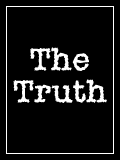Other NWV
Headlines:
New Mental Health Program Alarms Parents in Illinois
Senate Passes Unborn Victims of Violence Act
Book Banned In America While Troops Die For Freedom
FANNIE
MAE CHARGED WITH INAPPROPRIATE ACCOUNTING PRACTICES
September 24, 2004
Posted
2:05 AM Eastern
NewsWithViews.com
Fannie Mae (FNM), the nation's number one mortgage finance company is being charged with inappropriate accounting practices by a government review. Their accounting practices being called into doubt was disclosed by their board on September 22, 2004.
The Office of Federal Housing Enterprise Oversight, the company's regulator has outlined their findings to Fannie Mae alleging that their accounting methods deviate from standard practice, internal control failures and presents a pattern that accentuated stable earnings at the expense of accurate financial disclosures.
Federal regulators set forth a review of Fannie Mae's accounting practices after an accounting scandal at relative mortgage banker, Freddie Mac (FRE) last year that resulted in a whopping $5 billion dollar earnings "restatement." That scandal resulted in a $125 million dollar civil penalty for Freddie Mac.
Freddie Mac and Fannie Mae mortgage finance companies are among the largest financial institutions in the United States. They own or have guaranteed almost half of all U.S. mortgage debt outstanding: $7.8 trillion dollars.
Ann Korologos, presiding director of Fannie Mae's board states that the Securities and Exchange Commission is now conducting an "informal" inquiry into the findings by OFHEO. Fannie Mae's board is shareholder owned, but charted by Congress to support U.S. mortgage markets. Ms. Korologos is one of ten non-management directors of that company.
"OFHEO's report to the board states that 'the matters detailed in this report are serious and raise serious doubts concerning the validity of previously reported financial results,'" Korologos said. Ms. Korologos also went on to say that OFHEO told the company that its review of their accounting practices raises serious questions about the sufficiency of the company's regulatory capital, its overall safety, soundness and quality by its management supervision. Korologos has reinforced that the board takes the report seriously and would work together with regulators to resolve the matter in a most expeditious manner.
In an effort to complete this process, their board formed a full committee of independent directors to deal with OFHEO's report and the SEC inquiry. Warren Rudman, former NH Republican who served in the U.S. Senate has been hired to assist with a response for the legislators.
This situation with Fannie Mae raises big, red flags by former Wall Street financial wizards like Harvey Gordin, President of El Dorado Gold (search). "There are great concerns about mutual funds that have invested in debt and mortgage-backed securities issued by Freddie Mac, Fannie Mae and the Federal Home Loan Banks (FHLB). Thirty percent of the loans being carried by these entities are substandard. Even though these investments must be disclosed in any fund's registration statement, too many investors incorrectly assume that such securities are backed by the full faith and credit of the U.S. Government. They are not. While these operations are chartered or sponsored by Congress, they are not funded by Congressional appropriations. This means that those debt and mortgage back securities are not guaranteed or insured by the U.S. government."
Others like Vern McKinley, who has worked as a financial analyst and attorney in Washington, DC, labels Freddie Mac and Fannie Mae as "Corporate welfare Kind & Queen:
"They are two of the largest financial institutions in the nation, with more than half a trillion dollars in assets between them: Freddie Mac and Fannie Mae. But few people can explain exactly what function those financial giants serve.
"Freddie Mac and Fannie Mae indirectly assist home buyers by purchasing mortgages from lenders, such as commercial banks, savings and loans and mortgage banks. Freddie and Fannie, in turn, generally get those loans off their books by creating securities that are eventually paid off as the underlying mortgages are paid off. Homeowners are happy because they are aided in borrowing money for a home. Lenders are happy because they don't have to hold mortgages for several years. Investors in the securities are happy because they have a reliable investment, and Freddie Mac and Fannie Mae are happy because they make a handsome profit. Sound like capitalism at its finest? Not exactly.
"Although Freddie and Fannie are privately owned, they are what is known as government-sponsored enterprises (GSEs). GSEs don't have to follow all the rules that true privately owned companies do: they don't have to register their securities with the government, their securities receive special treatment for investment purposes, they don't have to pay state and local income taxes and--most important--their government sponsorship gives them the aura of a fully guaranteed government entity. That final benefit means they save billions in borrowing costs, just as lenders are willing to offer low-interest student loans that are guaranteed by the government. That savings alone allows the GSEs to pocket about $2 billion per year, according to estimates by the Congressional Budget Office and the Treasury Department.
"Allowing Congress to grant such special privileges is a bad idea. Those privileges, which are granted solely to Freddie and Fannie, crowd out other potential competitors in their market. Privately owned companies should not receive such preferred borrowing status, because it redirects investor funds into the middle- and upper-income housing market at the expense of other potential investments. Finally, the failure of either Freddie or Fannie could saddle taxpayers with a huge liability."
� 2004 NewsWithViews.com - All Rights Reserved
Sign Up For Free E-Mail Alerts
E-Mails
are used strictly for NWVs alerts, not for sale
Send comments on this article to:
newseditor1@earthlink.net
Freddie Mac and Fannie Mae indirectly assist home buyers by purchasing mortgages from lenders, such as commercial banks, savings and loans and mortgage banks.










